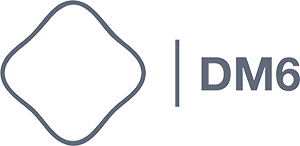Thyroglobulin
BackWhat is thyroglobulin?
Thyroglobulin is a protein produced by the thyroid gland that plays a crucial role in the synthesis of thyroid hormones. It is made up of two identical subunits, each containing approximately 550 amino acids, and has a molecular weight of approximately 670 kDa.
How is thyroglobulin synthesized and secreted?
Thyroglobulin is synthesized in the thyroid follicular cells and then secreted into the lumen of the thyroid gland. It is then transported to the apical surface of the follicular cells, where it is processed and packaged into secretory vesicles called thyrosomes. These vesicles are then exocytosed, releasing thyroglobulin into the circulation.
What is the role of thyroglobulin in thyroid hormone synthesis?
Thyroglobulin acts as a precursor for the synthesis of thyroid hormones, specifically thyroxine (T4) and triiodothyronine (T3). It is converted into T4 and T3 by the action of thyroperoxidase, an enzyme that is present in the thyroid gland. This process occurs on the apical surface of the follicular cells and requires the presence of hydrogen peroxide, iodine, and thyroglobulin.
How is thyroglobulin measured in the body?
Thyroglobulin levels can be measured in the blood using a laboratory test called a thyroglobulin assay. This test is usually done in conjunction with other thyroid function tests, such as a thyroid-stimulating hormone (TSH) test, to help diagnose and monitor thyroid disorders.
What is the clinical significance of thyroglobulin measurements?
Elevated levels of thyroglobulin can indicate the presence of a thyroid disorder or cancer. For example, high levels of thyroglobulin may be found in individuals with thyroid cancer or Graves' disease, a condition characterized by overproduction of thyroid hormones. On the other hand, low levels of thyroglobulin may indicate an underactive thyroid gland or hypothyroidism.
Are there any potential complications associated with thyroglobulin measurements?
False positives and false negatives may occur with thyroglobulin measurements, as the test may not always accurately reflect the presence or absence of thyroid disorders. In addition, thyroglobulin levels may be affected by a variety of factors, including medications, inflammation, and autoimmune diseases. It is important to discuss the results of thyroglobulin measurements with a healthcare provider to determine their clinical significance and to determine the appropriate course of treatment.
De Groot LJ, Abalovich M, Alexander EK, et al. Management of thyroid dysfunction during pregnancy and postpartum: an Endocrine Society Clinical Practice Guideline. J Clin Endocrinol Metab. 2012;97(8):2543-2565.
Kahaly GJ, Dillmann WH. Thyroid hormone synthesis and secretion. Endocr Dev. 2010;17:11-38.
National Cancer Institute. Thyroglobulin Test. https://www.cancer.gov/about-cancer/diagnosis-staging/tests/thyroglobulin-test.
National Institute of Diabetes and Digestive and Kidney Diseases. Thyroid Tests. https://www.niddk.nih.gov/health-information/diagnostic-tests/thyroid-tests.
The Endocrine Society. Clinical Practice Guidelines: Thyroid Hormone Measure.


